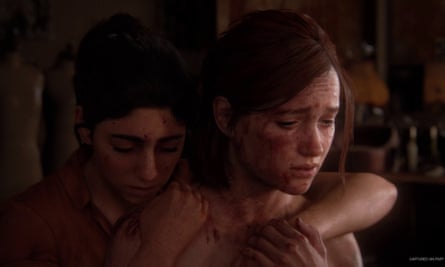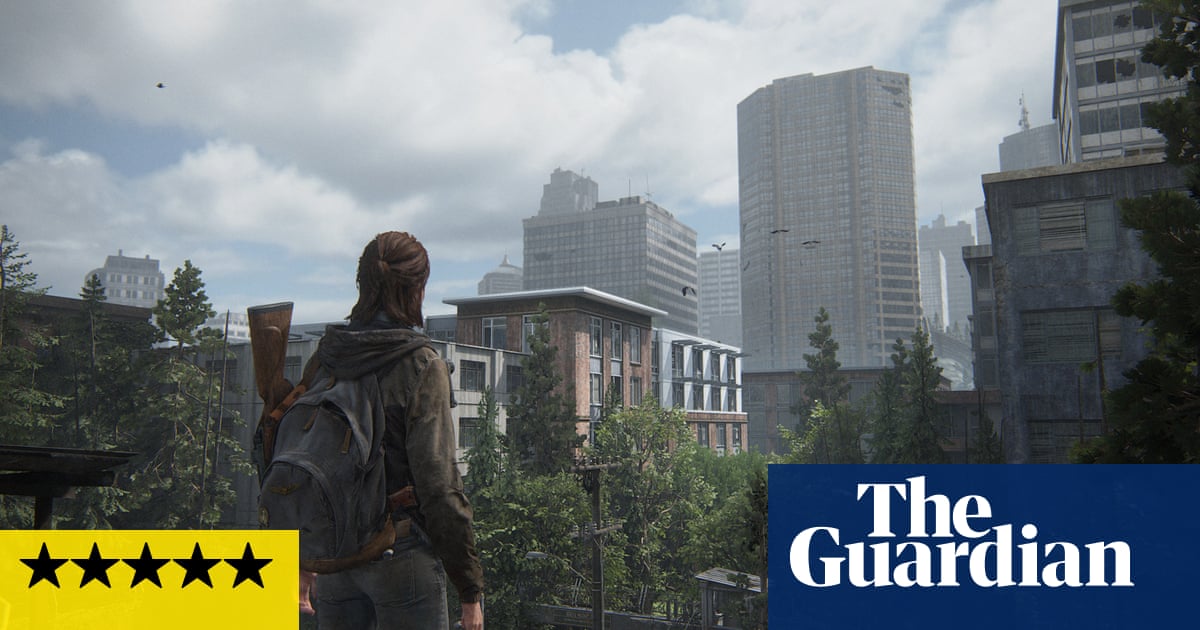It’s hard to believe The Last of Us Part II originally arrived almost four years ago, dropping right into the middle of the Covid lockdown period. There was such a haunting irony in the idea of people trapped at home by a global pandemic, playing an apocalyptic video game about … a global pandemic. Well, Covid never went away, and neither did the Last of Us – in 2021, a free upgrade allowed new PS5 owners to play a tweaked version of the PS4 original, then came the critically acclaimed TV drama series, which brought a new audience to the desperate tale of Ellie and Joel.
Now we have The Last of Us Part II Remastered, an overhauled version of the excellent game, which adds a new Fidelity Mode, offering 4K resolution at 30 frames-per-second, as well as a Performance Mode, in 1440p at 60 fps. You’ll need a decent display to spot the differences from the old PS5 upgrade, but they’re there. Movement is smoother, lighting is brighter and the scenic detail, especially on foliage, just has a touch more life to it, making for an even greater sense of immersion in this muddy, ruined world. I felt the impact hardest in the game’s epic fight scenes, which now feel utterly fluid and intense, and in the emotional cinematic moments that the game already did so brilliantly.

More important are the changes to the controls, with full implementation of the Dual Sense controller. The granular haptic feedback and adaptive triggers allow a palpable difference in feel between the various weapons, adding to the sheer physicality of the combat. The addition of a guitar mode that lets you strum Joel’s old acoustic using the touch pad is a peripheral but very pleasant feature.
What really lifts the game is the array of bonus content. A new mode named No Return is a rogue-like survival game in which you seek to stay alive as long as possible through multiple enemy attack waves. You get a choice of paths through the series of procedurally generated stages, each based around areas from the main game. If you die, it’s game over; if you make it to the end, there’s a giant boss battle.
This kind of “horde mode” is nothing new, but Naughty Dog has done a brilliant job of transporting the narrative tension of the main game into these enclosed shootouts. You don’t just stand behind cover and blast anything that moves, you have to creep through abandoned shops and backlots, listening out for enemies. Also, some stages are against the infected, while others feature human soldiers, so the tactics shift accordingly. What you get is a compelling mix of stealth and all-out action, and at the end of each stage, you can upgrade weapons and items. It’s also fun to play as different characters, such as Dina and Tommy, for the first time, as everyone’s traits affect gameplay differently. Sadly, there’s no multiplayer co-op here – it would have been fun to share the experience with a friend, but there has been well-publicised difficulties with the Last of Us online, so it’s no surprise.

My favourite addition, however, is Lost Levels, a selection of three playable stages that were cut from the game. There’s an extra build up to the Jackson Party where Dina and Ellie kiss, there’s an extended section in the Seattle sewers and finally a late-game scene where Ellie hunts a wild boar. These short sequences are unfinished and understandably rough in places but offer a truly fascinating glimpse into the development process – this sort of content is very rarely shared with players (or journalists, for that matter).
All the scenes also have audio commentary from the lead designers and provide insight into just how much thought and planning goes into every tiny section of the game, from how the designers establish the emotional context of a scene to deciding the exact length of an escape ladder, thereby emphasising the player’s sense of relief and escape. The Lost Levels reminded me of the excellent talk given by Uncharted lead designer Richard Lemarchand at the GameCity festival a few years ago about the development of Uncharted 3. Students of game design should leap at this learning opportunity.
after newsletter promotion
The Last of Us Part II Remastered feels like the video game equivalent of a Criterion Collection Blu-ray – a carefully curated celebration of a landmark release. Experiencing this brutal adventure once again, in a visually and haptically enhanced format, was a bludgeoning experience, as exhausting, moving and invigorating as my first playthrough. It is a joy to see video games treated in this way, but it is also a reminder of how few studios and releases will ever see this sort of reverent repacking. I love the stuff that Limited Run Games does with physical releases, but imagine if all remasters and reboots could show us deleted scenes and developer insights. There is so much nonsense talked about the game development process on forums and social media, so many utterly incorrect assumptions. Greater access to the process would be a boon for all.
For those who have never played the game, or who haven’t experienced it on a PS5, this is a required experience – it is the state of the art of mainstream narrative gaming, lovingly reborn.







